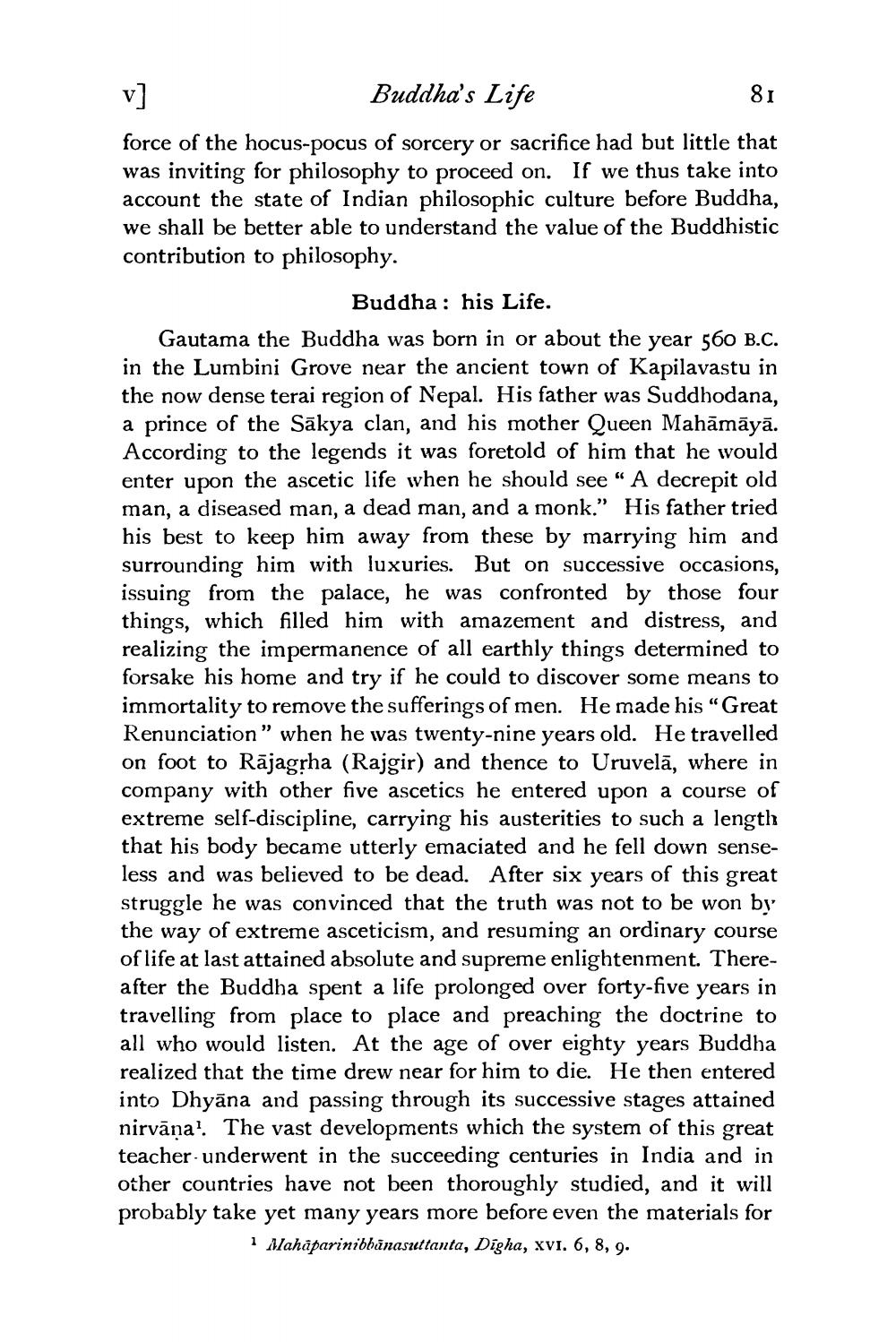________________
Buddha's Life
81
force of the hocus-pocus of sorcery or sacrifice had but little that was inviting for philosophy to proceed on. If we thus take into account the state of Indian philosophic culture before Buddha, we shall be better able to understand the value of the Buddhistic contribution to philosophy.
Buddha: his Life. Gautama the Buddha was born in or about the year 560 B.C. in the Lumbini Grove near the ancient town of Kapilavastu in the now dense terai region of Nepal. His father was Suddhodana, a prince of the Sākya clan, and his mother Queen Mahāmāyā. According to the legends it was foretold of him that he would enter upon the ascetic life when he should see “A decrepit old man, a diseased man, a dead man, and a monk.” His father tried his best to keep him away from these by marrying him and surrounding him with luxuries. But on successive occasions, issuing from the palace, he was confronted by those four things, which filled him with amazement and distress, and realizing the impermanence of all earthly things determined to forsake his home and try if he could to discover some means to immortality to remove the sufferings of men. He made his "Great Renunciation" when he was twenty-nine years old. He travelled on foot to Rājagrha (Rajgir) and thence to Uruvelā, where in company with other five ascetics he entered upon a course of extreme self-discipline, carrying his austerities to such a length that his body became utterly emaciated and he fell down senseless and was believed to be dead. After six years of this great struggle he was convinced that the truth was not to be won by the way of extreme asceticism, and resuming an ordinary course of life at last attained absolute and supreme enlightenment. Thereafter the Buddha spent a life prolonged over forty-five years in travelling from place to place and preaching the doctrine to all who would listen. At the age of over eighty years Buddha realized that the time drew near for him to die. He then entered into Dhyāna and passing through its successive stages attained nirvāna! The vast developments which the system of this great teacher-underwent in the succeeding centuries in India and in other countries have not been thoroughly studied, and it will probably take yet many years more before even the materials for
1 Mahāparinibhānasuttanta, Digha, xvI. 6, 8, 9.




